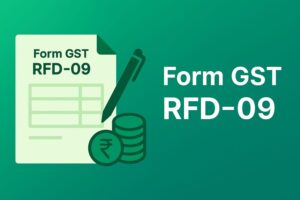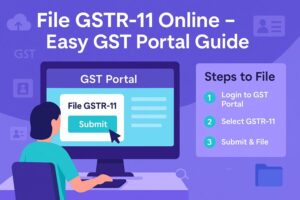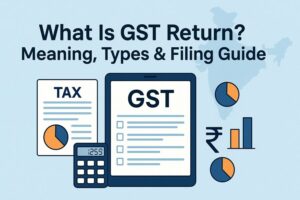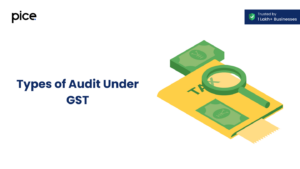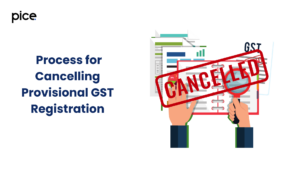Introduction to GST on Professional Services
- 17 Dec 24
- 8 mins

Introduction to GST on Professional Services
Key Takeaways
- GST applies at 18% on most professional services.
- Professionals with annual turnover above ₹20 lakh must register for GST.
- Input Tax Credit (ITC) helps reduce the tax burden on professionals.
- Accurate invoicing and record-keeping are crucial for GST compliance.
- Timely GST return filing ensures seamless compliance and avoids penalties
The Goods and Services Tax (GST) has transformed the Indian taxation framework, impacting every business and professional sector, including professional services. Effective in 2017, the aim was to eliminate the cascading effect of double taxation, and achieve "One Nation, One Tax".
GST impacted professional services like consulting, marketing, legal advisory services, and more. The billing structure, tax compliance, and input tax credit have significantly changed.
In this blog, we will discuss GST on professional services, exemption limits, necessary documentation, and other important aspects.
Understanding GST and its Application
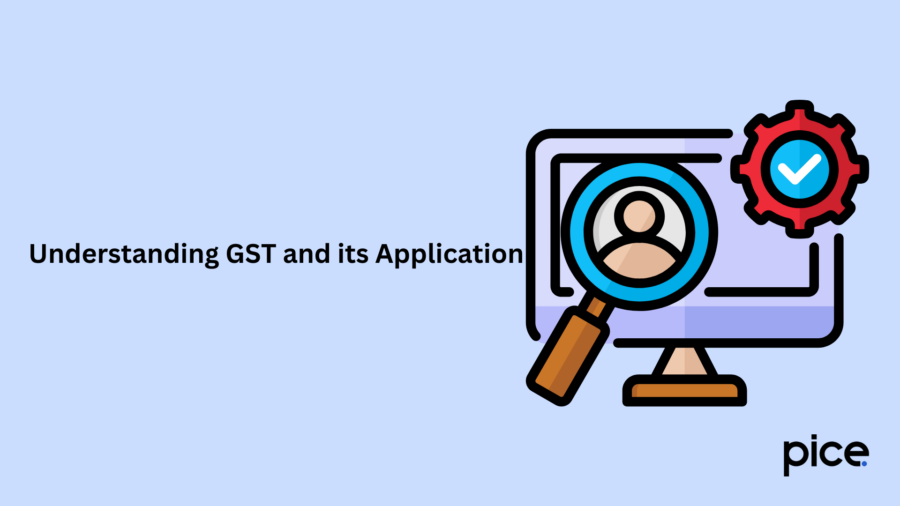
Goods and Services Tax is a destination-oriented, multi-stage tax that is applicable on every value-added. Prior to GST, there existed multiple indirect taxes like excise duty, VAT, service taxes, etc. With the implementation of GST, goods and services fall under a single indirect tax law throughout India.
Companies need to register under GST if their annual revenue is more than ₹40 lakh. The threshold limit decreases to ₹10 lakh for special category states. Manufacturers, traders, and service providers need to use GST on their taxable supplies.
Let us understand the application of GST and how it impacts a wide range of industries:
- Service Industry: GST applicability on services is mandatory in service sectors like IT, consulting services and essential healthcare services. Standard taxation is levied on multiple professional services.
- Real Estate: GST has impacted the real estate sector considerably, with respect to selling properties under development. Additionally, it has an impact on the prices of these properties and transaction taxes.
- Import and Export: GST is applicable on both imports and exports in cases of international trade. Businesses avail Input Tax Credit (mechanism) to claim credit from cross-border professional services.
Professional Services and GST
Professional services are non-physical goods or services that an individual or a group of people offer to customers. Additionally, a business can also provide its clients with expert services. For instance, a dancer who teaches dance to a section of people is eligible to provide a professional service.
The professional service provider has specialisation in a particular field. For instance, a digital marketing specialist. The professional services can be based on a contract, private practice work, or freelance.
Not only individuals, but even business entities can offer expert services to their clients. For example, a marketing agency can provide services to a firm to promote them.
Professional services are associated with professional fees. These fees are set by the service providers. Tax is applicable on incomes generated from professions under the Income Tax Act, 1961. Educational services are exempt from GST. However, ancillary services by educational institutions are subject to GST.
Here is a list of professionals whose income will be subject to tax:
- Chartered accountants
- Company secretaries
- Architects
- Engineers
- Doctors
- Lawyers
- Cost accountants
- Interior decorators
- Technical consultants
- Film directors
- Artists
- Cameramen
- Singers
- IT specialists
- Authors
GST Exemption Limit for Professionals
According to the 13/10/2017 Notification No. 10/2017-Central Tax, professionals with total receipts less than twenty lakhs have GST exemption.
GST Rate for Professionals
GST, at the rate of 18%, is applicable to almost all categories of professions in India. SAC codes play an important role in determining tax implications for the professional services and the service providers. These codes are divided into headings and sections. The length ranges between 4 and 6 digits. Each profession has a different SAC code.
Take a look at the table below to learn about the SAC codes along with the GST applicability to services:
| SAC Codes | Services | GST Rate |
| 998391 | Design services like fashion, industrial, interior, and other design fields. | 18% |
| 998392 | Design originals | 18% |
| 998393 | Technical and scientific consultancy services. | 18% |
| 998394 | Original information or compilation of facts | 18% |
| 998395 | Interpretation and translation services. | 18% |
| 998396 | Franchises and trademarks. | 18% |
| 998397 | Brand promotion and sponsorship services. | 18% |
| 998398 | Other business services, technical and professional services. | 18% |
Documents Needed for Professionals to Register for GST
Following are the documents that professionals require to register for Goods and Services Tax:
- Photo
- PAN Card
- Address proof for office
- Proof of address
- NOC, in case of rental office
- Mobile number and email address
GST Registration for Professionals
Here is a step-by-step GST registration procedure for professionals:
- Submit the necessary documentation like PAN card, proof of business registration, bank details, etc. for GST registration.
- Upon approval of your documents, register yourself on gst.gov.in.
- Make an application for GST registration.
- All filling in the blanks, submit your application.
- Finally, obtain an approval for your registration.
GST Return Submissions
Monthly, quarterly and annual filing of GST returns are required after GST registration. Some important GST return forms are GSTR-1 and GSTR-3B.
Impact of GST on Professional Fees

Let us discuss some of the impact of Goods and Services Tax on professional fees:
- Simple Taxation Framework: GST has simplified the indirect taxation framework in India. This has made GST compliance easier for professionals.
- Single Taxation: GST has replaced the existing indirect taxes, thus simplifying the submission and computation of taxes for professionals. Additionally, it ensures higher transparency and uniformity.
- Input Tax Claim: Professions can claim ITC for their tax payments on inputs with the Input Tax Credit mechanism.
Challenges and Considerations
There are certain challenges and considerations which professionals need to address for seamless operations:
- Variety of Services: Professionals offer a wide range of services, resulting in a variety of professional fees. Therefore, classification becomes difficult.
- Registration and Threshold Limits: Professionals need to keep a check on their turnover to verify if they exceed the threshold limit for GST registration.
- Communication with Clients: Professions need to communicate the applicability of GST on professional fees. This will help them ensure clear transactions and prevent any kind of misconception in the future.
- Impact on Cost Structure: Professionals must consider the impact of GST on cost structures and pricing strategies to understand its impact on the total revenue of a professional.
- Transition from the Old Taxation System: It can be initially difficult to adjust to the shift from the old taxation system to GST.
Compliance and Legal Aspects
Here are some important details regarding the compliance process and legal aspects of GST compliance:
- GST Registration Requirement: Professionals need to mandatorily have a GST registration if their total revenue is more than the threshold limit.
- Filing of Returns: Professionals need to submit accurate and periodic GST returns in order to adhere to the compliance requirements and avoid hefty penalties or legal consequences.
- Record-Keeping: Professionals need to maintain accurate records and documentation for a particular financial year. The documents include agreements, invoices, and financial papers.
- Concessions and Exemptions: Professions must be aware of the applicable exemptions and concessions to certain services.
- Invoicing Compliance: Invoices need to be created as per GST regulations. The invoices need to include the following details:
- GSTIN of the professional
- Customer details
- Applicable GST rates
- Description of the service
- Total due amount
Calculation of GST for Professional Services
Follow the steps below to calculate GST on services:
- Determine the GST Rate: First, determine the GST rate which is applicable for the particular service.
- Calculate the Amount: Multiply the service value with the rate of GST, say 18%.
- Include GST in the Service Value: Include the amount of GST in the finance invoice amount.
- Utilise a GST Calculator: Make use of a GST calculator to save time and increase the accuracy of the calculation.
Conclusion
By understanding GST on professional services and its application, professionals can not only ensure continuous compliance with GST regulations but also enhance customer engagement. From offering benefits of Input Tax Credits to simplifying tax procedures, GST offers multiple advantages which professions can utilise for growth.
💡If you want to streamline your payment and make GST payments, consider using the PICE App. Explore the PICE App today and take your business to new heights.
FAQs
Is GST registration mandatory for professionals?
What is the GST rate applicable to professional services?
Can professionals claim Input Tax Credit (ITC)?
What documents are needed for GST registration for professionals?
PAN card
Address proof (office and personal)
Recent photograph
Bank account details
NOC, in case of a rented office.
Once these documents are submitted on the GST portal, professionals receive their GSTIN.
 By
By 





